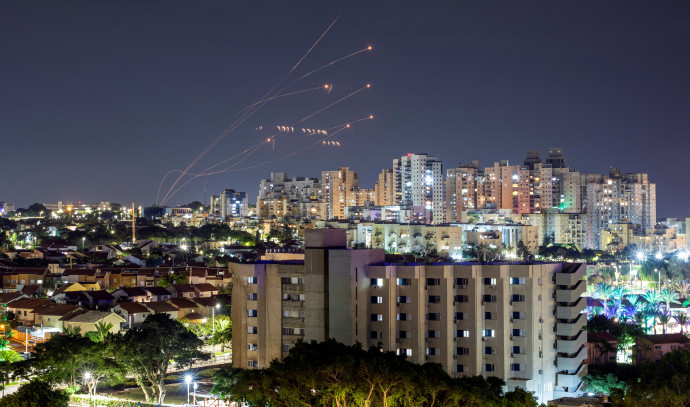Hamas’s attacks on Israel, which began Saturday morning, were planned weeks in advance with assistance from Iranian security officials, according to a Sunday report from The Wall Street Journal.
The report, citing senior members of Hamas and Hezbollah, stated that the Iranian officials “gave the green light” for the attacks during a meeting between them and Hamas in Beirut last week.
IRGC officers worked with Hamas since August to plan incursions from the “air, land, and sea,” the report noted. Officers of Iran’s Islamic Revolutionary Guard Corps were also at the meetings in Beirut.
Iran’s supreme leader, Ayatollah Ali Khamenei, had praised the attacks, posting on X earlier this week that the cancer of the usurper Zionist regime will be eradicated at the hands of the Palestinian people and the Resistance forces throughout the region.” Formerly known as Twitter, X stated that Khamenei’s post violated the platform’s rules.
At least 700 Israelis were killed and around 2,300 injured in attacks by Hamas since Saturday morning, with the number expected to rise.
Iran’s Supreme Leader Ayatollah Ali Khamenei speaks during a meeting with the guests of the Islamic Unity Conference in Tehran, Iran October 3, 2023. (credit: Office of the Iranian Supreme Leader/WANA/Handout via Reuters)
Hours earlier, Hamas spokesman Ghazi Hamad told the BBC that the terrorist group had direct backing and support from Iran, which also promised it would “stand by the Palestinian fighters until the liberation of Palestine and Jerusalem,” the report quoted him as saying.
This is a developing story.

